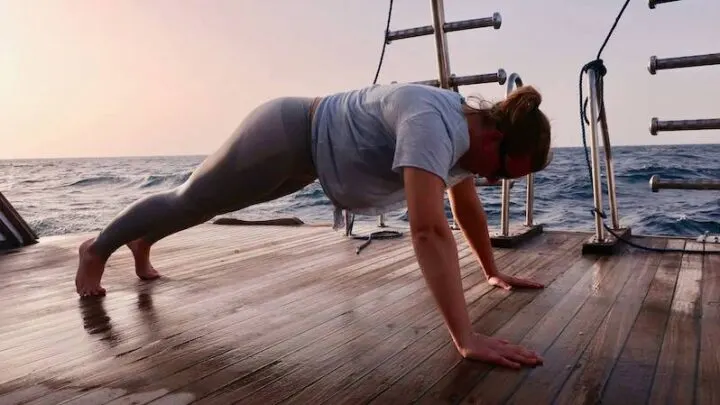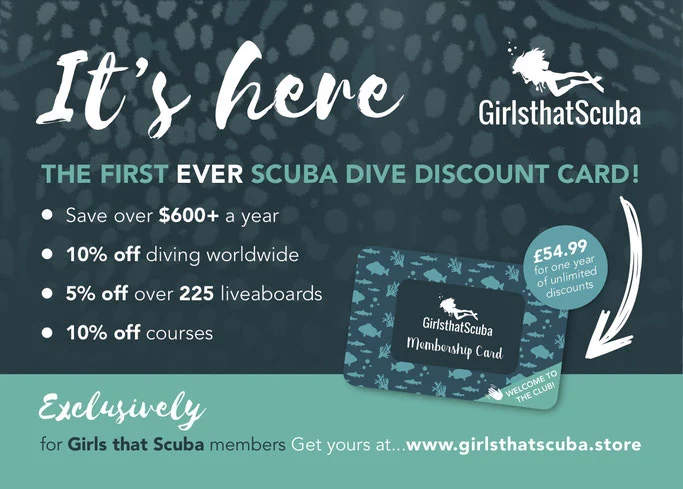Let’s keep fit to scuba dive!! It’s January. We are all full of too much something at this time of year: turkey and mince pies, gin and wine, or the dreaded common cold! In the winter months, many of us are looking forward to the next dive season or escaping to warm waters for our next trip. But right now, many of us feel anything but fit!
Want even more fitness advice realted to diving? Join our Facebook Group GTS Mind, Body & Soul
Here are six things to focus on in staying fit-to-dive this year.
1. STOP! Rest and recover
Our world is getting increasingly frantic, with more and more tasks piling up on us. Sometimes the best step to improving your fitness to dive is to do nothing! Seriously, booking some time where you do not expect yourself to do anything at all. Of course, with that freedom you might find feel like sitting, doing yoga, wandering or just staring out at the sea.
But no pressure! Because (and, here is the science bit) our physical bodies have vital work to do, keeping our systems healthy and functioning. They do this maintenance and restoration work while we rest. If we don’t stop from time to time, our systems get over stretched and run down. So relaxation is really a core part of keeping fit-to-dive.
2. Sleep
Talking of rest, getting enough sleep is essential. Research has shown that our brain sort of washes itself while we snooze. The brain fluid cleans out all the crud and also does important stuff like sorting through and storing memories. Lack of sleep not only leads to tiredness, it also means our brains don’t work quite as well, it becomes harder to learn and we are more likely to get stressed and make mistakes. When we are diving, we want to stay safe, so being fit-to-dive means putting in some series hours … in bed!

3. Eat good things
Our bodies and brains need good fuel to keep going, and we build our systems out of the food we eat. So think about what you are putting in, is it what your body needs? There are a million kinds of fancy diets out there, and all kinds of debate on how to lose weight. Y’know, quite frankly, a lot have us have got better things to do!
But, what seems to be a generally effective approach goes like this: “Not too little, not too much, mostly plants!”
Also, the more processed a food is, the more stuff is in it, and so the less of it needs to be eaten.
We are not going to tell you what to do! Gather information, try various things and do what works for you! If it stops working, then just try something different. And please! don’t waste a single second beating yourself up over it (because that is the one thing that really won’t work).
4. Move Around
… any way you want! Even if you look silly, we don’t mind. Just move!
Run, swim, cycle, walk. Do yoga, lift-weights, Zumba, Capoera, surfing, salsa dancing. Sex! Play football, basketball, hockey. Go rock climbing, zip-lining, horse-riding, hiking, coasteering or kayaking.
It really doesn’ t matter, as long as you keep moving!
Be active and enjoy it. The more you like moving, the more you’ll want to do it. And that will keep your body and mind fit-to-dive.
5. Learn
Just like our physical fitness depends on moving, our psychological fitness develops through learning. Building our knowledge and getting better at skills is a really important part of diving, not just for diving, but for our brains too. Perhaps there are more diving courses you are looking forward to this year, maybe you are going to travel and learn languages? Or would you like to learn more about marine flora and fauna, coral-spotting is great for stretching your understanding (also, they don’t move like the fish, so it’s easier!).
6. Connect
Humans are social creatures, and we are happier and healthier when we feel connected. So join your local dive club, book a group dive trip, ooo!! Go on a live-aboard (“eat-sleep-dive -repeat” has to be good for you!). Or meet-up with your fellow Girls that Scuba!

About the Author
Laura is a Scuba Diving Instructor and Clinical Psychologist with a fascination for the psychology of diving. She is also the author of the PADI Psychological Diver course. Learn about how psychology can improve your diving on her website www.fittodive.org and Facebook page.



